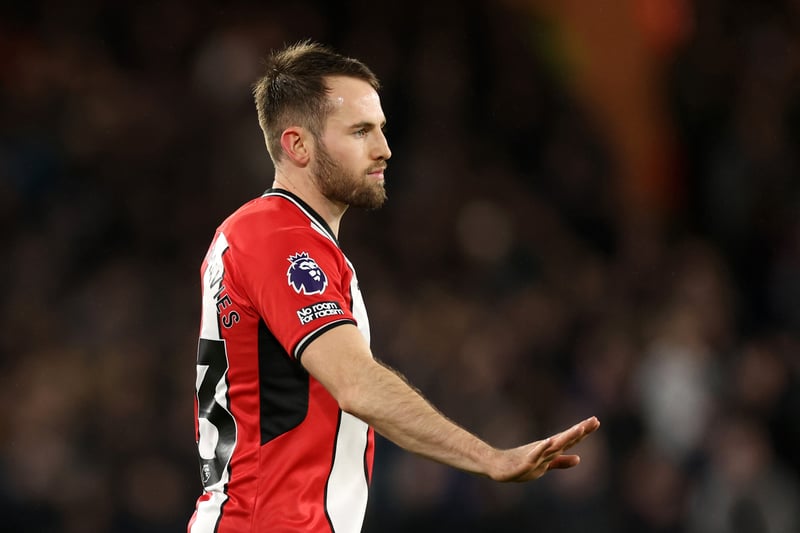Premier League chief football officer Tony Scholes has suggested some changes could be made to the way VAR is implemented in the English top flight.
A Premier League independent key match incidents panel deemed that 20 video assistant referee errors have been made so far this season. 17 of those errors have been as a result of VAR failing to intervene in incorrect on-field decisions while three incorrect decisions were deemed to have been made as a result of VAR intervening.
The biggest VAR blunder of the season so far was Luis Diaz's goal for Liverpool against Tottenham Hotspur being incorrectly ruled out for being offside despite the VAR check proving the player was in an onside position. The VAR audio released from the incident confirmed that the decision came about as a result of human error.
The other two errors, according to the panel, were due to VAR intervening when it shouldn't have. Burnley midfielder Sander Berge had a goal disallowed following a VAR check for handball against Nottingham Forest.
And Arsenal were denied a penalty against Manchester United earlier this season after referee Anthony Taylor initially pointed to the spot following a challenge from Aaron Wan-Bissaka on Kai Havertz before a VAR intervention prompted the official to consult the VAR screen and overturn his decision.
Liverpool were said to be on the receiving end of the most incorrect VAR decisions this season with four going against them while Aston Villa have benefitted most with three incorrect decisions going in their favour. Newcastle United have benefitted twice from incorrect VAR decisions this season.
VAR is only encouraged to intervene if it is felt a clear and obvious error has been made by the match officials. Last season, Newcastle were deemed to be on the receiving end of one of the biggest VAR mistakes after having a goal chalked off against Crystal Palace during a 0-0 draw at St James' Park.
Tyrick Mitchell prodded the ball into his own net and the goal was initially awarded by on-field referee Michael Salisbury before VAR intervened. VAR official Lee Mason advised a review of the goal, highlighting a potential foul by Newcastle midfielder Joe Willock on Palace goalkeeper Vicente Guaita.
Premier League chief Scholes has been critical of VAR for the frequency and timing of in-game checks.
“We're doing too many checks, we’re taking too long in doing them as well," he said.
“The second area where the VAR experience is poor is the in-stadium experience for the supporter. It's nowhere near good enough. It affects supporters’ enjoyment of the game, and we know it needs to change.”
The release of VAR audio from incidents has been praised for its transparency, though the audio is often released days after the event has taken place.
But Scholes believes VAR decisions will soon have audio and video played live to justify the decision-making process.
"We're constrained by IFAB," Scholes added on the release of VAR audio. "They're very clear at the moment we cannot use the audio, we cannot play the audio.
"We'll get to a point where video and audio is played live and then played afterwards to explain the decision.”
The introduction of VAR has led to a significant increase in correct decisions, according to the panel. Before VAR, 82% of refereeing decisions were deemed correct in matches, this has increased to 96% under VAR.
"[VAR has] intervened correctly on 57 occasions [this season]," Scholes continued. “VAR has also made some errors this year and it's important we always acknowledge that.
“It's an unfair assessment to referees to say the quality is poor. The panel's results would suggest match officiating in the Premier League is at least as good/better than it's ever been.”
The panel found that 'effective playing time' is up 3 minutes and 31 seconds to 58 minutes and 28 seconds. It is suggested this has been as a result of officials clamping down on 'time-wasting behaviour' and stricter rules involving added time.
Yellow cards for time-wasting have increased by 67 to 145 so far this season while yellow cards for dissent are up from 48 to 112.
The change from referees has been highlighted by Newcastle head coach Eddie Howe, who has lost three players to yellow card suspensions so far this season in Bruno Guimaraes, Anthony Gordon and Kieran Trippier. Guimaraes and Gordon are just one and two bookings away from two-match suspensions respectively.
“The rules now mean there will be more yellow cards so the referees [have] definitely tightened up over the summer in terms of discipline, time-wasting and loads of little things to the game where you can and some of our players have picked up a yellow card for nothing, or perceived nothing,” Howe said.
“More yellow cards means more suspensions so we have to be careful. But certainly, I don’t want to be taking aggression out of anyone’s game, it’s the indiscipline ones that we want to try and eradicate.”
Changes have also been proposed to introduce a semi-automated offside system such as the one used in the Champions League. The current offside system used in the Premier League requires VAR officials to manually place lines on still match images to deem whether a player is in an offside position.
Many controversial VAR decisions have been as a result of the offside decision-making process, which has been criticised as taking too long and for its lack of accuracy - leading to incorrect decisions.
A decision on the introduction of semi-automated offsides is set to be made by Premier League clubs later this year with the hope of it being in place for the start of the 2024-25 season.
Here is how the Premier League table would look if VAR was not in place this season...




